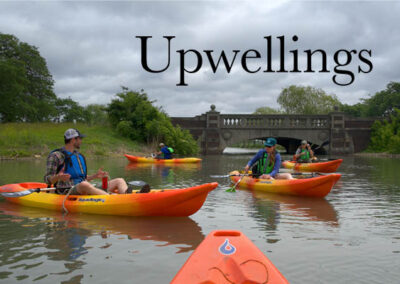Michigan Sea Grant recently launched seven new research projects worth more than $1.5 million to protect and restore the critical environmental resources of the Great Lakes. Projects range from investigating the effects of invasive species to ensuring healthy populations of walleye to building a system of collaborative water resource management.
These projects bring together innovative teams from Michigan that will provide science-based information useful to decision makers and are leveraged by a wide array of partners, including state and federal agencies, non-profits, educators, and other research institutions.
 “Michigan Sea Grant is funding four research projects that address topics that were identified by stakeholders as current areas of interest and need in the Great Lakes,” says Michigan Sea Grant Research Program Manager Michael Fraker. “We also are funding three graduate fellows who will be working closely with agency sponsors on research projects relevant to current ecological, habitat, and management issues.”
“Michigan Sea Grant is funding four research projects that address topics that were identified by stakeholders as current areas of interest and need in the Great Lakes,” says Michigan Sea Grant Research Program Manager Michael Fraker. “We also are funding three graduate fellows who will be working closely with agency sponsors on research projects relevant to current ecological, habitat, and management issues.”
Michigan Sea Grant has committed almost $1 million to fund four new research projects, which includes $225,000 in funding from the Michigan Department of Environment, Great Lakes, and Energy, plus $150,000 to fund three graduate fellowships. In addition, university research partners have added more than $500,000 in additional matching funds.
“These awards represent one of our largest contributions to date for supporting critical research aimed at helping to manage our Great Lakes resources, “ says Tom Johengen, Michigan Sea Grant director.
The research projects include (click links to explore overviews for each project):
- Helping Michigan communities meet their water use needs through collaborative water resource management — Adam Zwickle, Michigan State University (joint project with EGLE)
- Quantifying the role of invasive mussel larvae in lower trophic levels of Lake Huron’s food web – Gordon Paterson, Michigan Technological University
- Understanding where walleye spawn in Saginaw Bay to ensure better management and habitat protection – Chris Vandergoot, Michigan State University
- Mapping genetic variation in Microcystis to improve Great Lakes harmful algal bloom models – Vincent Denef, University of Michigan
The graduate fellowships are as follows (click links to explore overviews for each project):
- Using audio playback to attract desired migratory bird species to restored coastal wetlands – Dustin Brewer, Central Michigan University
- Understanding the effects of invasive mussels on freshwater bacterial communities in the Great Lakes – Nikesh Dahal, University of Michigan
- Variation among walleye populations may affect how they respond to climate change – Scott Jackson, University of Michigan
Every two years, under a competitive process, Michigan Sea Grant funds a suite of research projects and graduate fellowships that address issues affecting Great Lakes ecosystems and Michigan’s coastal communities.
Funding for these projects will run from 2022 to 2024.
For more information, visit the Michigan Sea Grant Current Projects page.


